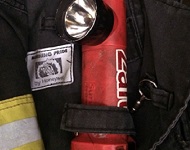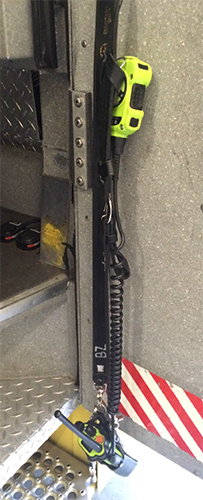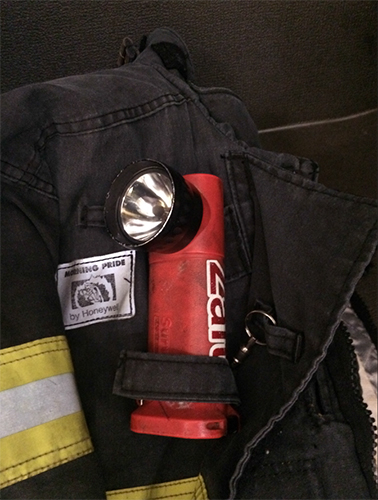
By Brian Zaitz
If you have spent any amount of time in the fire service, you are familiar with the “Change Your Clock, Change Your Battery” campaign. This slogan is used bi-annually to remind citizens to inspect and test their smoke alarms and change their batteries. This is done to maintain these life-saving devices. So I ask, How often do you “Change Your Batteries”? Many of our essential firefighting tools require power, many times coming in the form of batteries. These items include portable radios, flashlights, thermal imaging cameras, and reciprocating saws. These devices rely on power to function and support our fireground operations. It is time to take a look at few battery-operated items and ensure they are fireground ready.
Portable Radios
Check to ensure you have the correct radio; today’s modern radio systems often feature unit identifiers built into them that can correlate a transmission with apparatus and even seat assignments. You can use this identifier to associate an emergency alert or Mayday with a down firefighter.

Make sure your radio is set up for you. Radio straps provide the optimal method for both carrying and utilizing your radio. They protect the cord on the extension microphone as well as place the radio in the ideal position for transmission. No matter how you carry your radio, treat it like a part of your gear and have it ready when the tones drop.
Check the battery; I suggest swapping the battery at the start of every tour. Again this ensures you will have a fully charged radio and sets you up for success when needed.
RELATED: Viscuso on Cellular Base Stations ‖ Montagna and Natale on Electric Substations ‖ Blount on Light Rail Incidents
Flashlight
A flashlight is the most commonly carried hand tool by firefighters; no matter what, your next assignment should include a flashlight or, even better, two flashlights. Flashlights illuminate the immediate work area and improve your effectiveness on the fireground.

For these reasons we must always check to make sure our flashlights are bright and that we have fresh batteries, if the light is rechargeable make sure the batteries are charged and still serviceable.
Self-Contained Breathing Apparatus (SCBA)
We all know the importance of the daily SCBA check; this is our lifeline inside a structure fire. With that said, how often do you check the batteries on the SCBA that powers the electronic components such as PASS alarm. Also, how often do you check the batteries on your voice amplifier? These batteries should have a routine replacement schedule to ensure that they are always optimal when needed.
Many of your daily tools rely on power, often in the form of batteries. Always check to make sure that your electronics are charged and ready. Take the time to change check your batteries!
Download this training bulletin as a PDF HERE (2.8 MB)
 Brian Zaitz is a 14-year student of the fire service, currently assigned as the captain/training officer with the Metro West (MO) Fire Protection District. Brian is an instructor with Engine House Training, LLC as well as instructor at the St. Louis County Fire Academy. Brian holds several degrees, including an associates in paramedic technology, a bachelors in fire science management, and a masters in human resource development. Brian is currently and accredited chief training officer and student of the National Fire Academy’s Executive Fire Officer Program.
Brian Zaitz is a 14-year student of the fire service, currently assigned as the captain/training officer with the Metro West (MO) Fire Protection District. Brian is an instructor with Engine House Training, LLC as well as instructor at the St. Louis County Fire Academy. Brian holds several degrees, including an associates in paramedic technology, a bachelors in fire science management, and a masters in human resource development. Brian is currently and accredited chief training officer and student of the National Fire Academy’s Executive Fire Officer Program.
MORE THROW BACK TO BASICS

